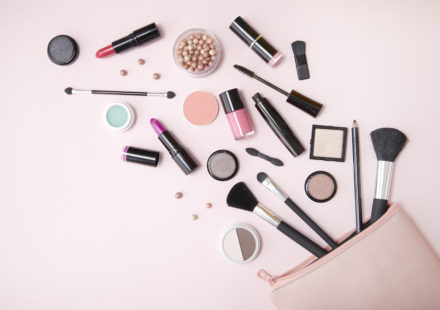SEO For Luxury Brands: 4 Tips to Improve Performance
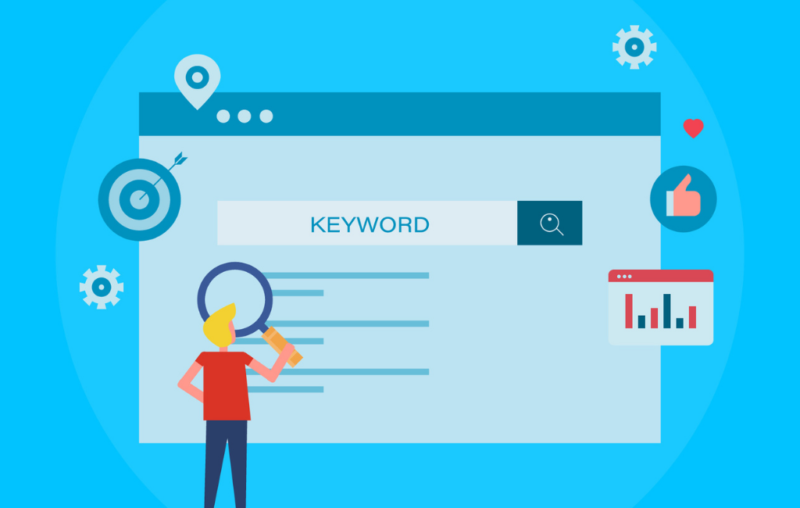
Strong SEO performance vastly aids profitability for any online retailer.
For luxury retailers, whether you’re selling your own services or products or are a reseller, the fundamentals of driving SEO performance aren’t wildly different from those who compete on price.
However, the interplay between SEO and the building and maintenance of a luxury brand requires closer scrutiny if you are to make the most of this channel.
Rather than go through the fundamentals of driving SEO performance, we’ll explain how luxury brands need to tweak their approach for the biggest revenue gains, including:
Focused keyword targeting
With products or services that have a high price point, it’s imperative that those who have the ability and desire to spend more are clicking through to your site from organic search results.
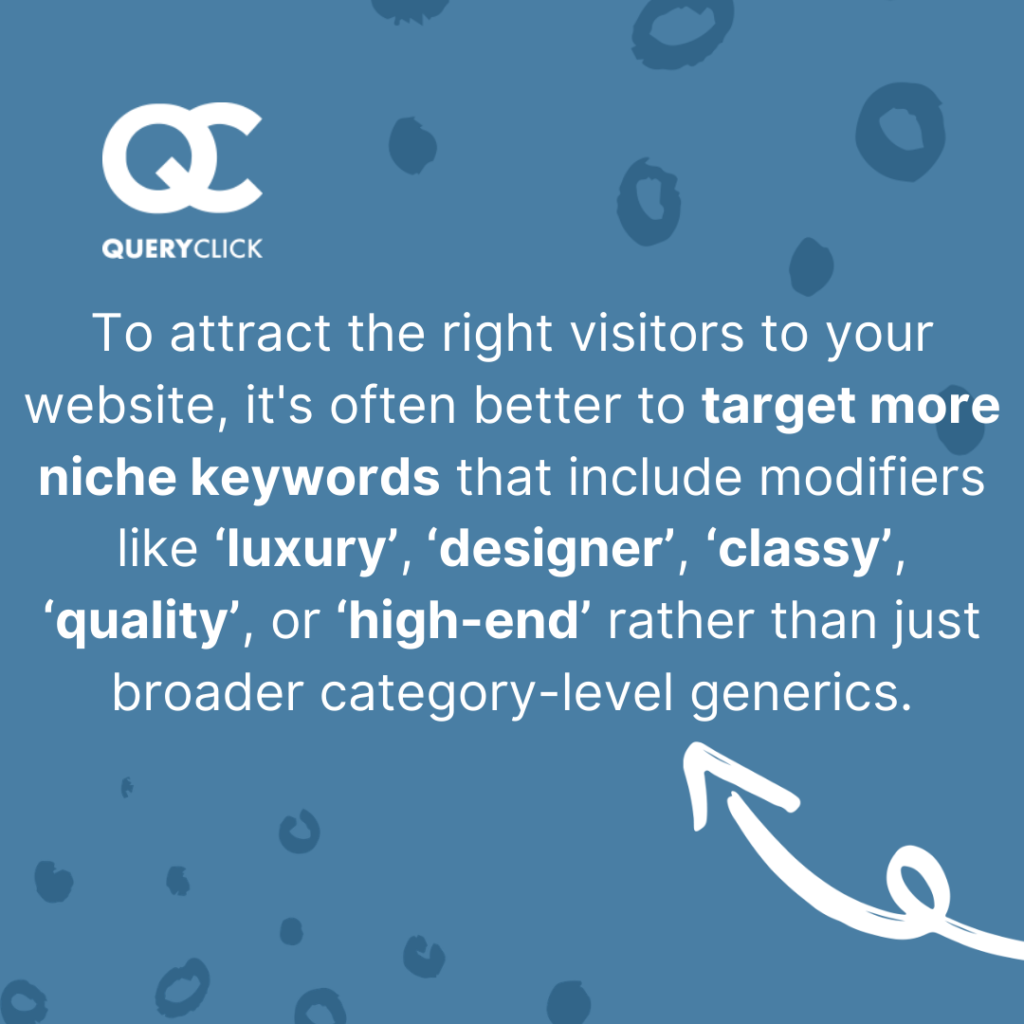
The key to attracting the right visitors is targeting the right keywords.
It’s better to hone in on those that convert best, which are typically those that are most relevant, rather than those with the highest search volume.
For example, it is often better to target more niche keywords that include modifiers like:
- ‘luxury’
- ‘designer’
- ‘classy’
- ‘quality’
- ‘high-end’
Rather than just broader category-level generics.
Depending on what you sell, there may be specific product features that you can use to inform your targeting and help you generate traffic from those with the highest propensity to convert.
For example, targeting:
- ‘men’s selvedge jeans’ rather than just ‘men’s jeans’
- ‘holiday cottages with hot tubs’ rather than just ‘holiday cottages’
Related: Top 5 Keyword Research Tools to Drive SEO Performance
Of course, search volume can help you understand whether your audience are aware of and demanding those features.
Admittedly, part of sustaining that understanding of luxury is the cache afforded to the owners of your products. Some of that comes from the recognition of those who can’t afford pieces of such high quality.
Rather than focusing on this brand goal of awareness by attracting higher volumes of traffic from users that are window shopping and dreaming of the day they can purchase your products, it is much healthier for your business to focus on getting organic visitors that are more likely to become customers.
Positioning the brand and your products as something to aspire to is better served by other channels. As well as using relevance alongside search volume to inform your targeting, learning from your PPC performance will help you identify which are the keywords that convert best.
Plus, making PPC and SEO work together as one single search channel can bring greater efficiencies and a higher ROI.
Effective SERP display
Typically, the more relevant, specific keywords, as seen above, are longer.
When space is at a premium in the page title and meta description pixels read and displayed by search engines, that targeting has to become even more focused.
Essentially, fewer keyword variations and synonyms can be used in titles and descriptions.
This can be accentuated by other factors too.
Luxury companies thrive on strong, distinctive branding and this must be inherent in every facet of marketing (and beyond). This can place impositions on the wording you are able to use in titles and descriptions.
For example, to reinforce the understanding of your company as being high-end, certain styles of language and phrasing may have to be adopted.
It could be the case that ‘complimentary delivery’ is used rather than ‘free delivery’ in all marketing material, for example.
However, complimentary delivery in a meta description uses more than twice the number of pixels than free delivery.
Additionally, with effective schema mark-up prices from product pages may be pulled into the search results for product pages.

If your brand is less well-known, it’s imperative that you convince searchers of the benefits of your products and they justify the price tag.
Therefore, having a narrowly defined keyword set to focus on with each page and selecting only the most relevant is paramount.
That allows you more space in meta descriptions to remain on brand and convince users to click through by eschewing the quality and benefits of your offering.
Optimising page speed
Once a user clicks through to your site, you’ll want to present all the trappings of decadence, whether it’s:
- information about the beautiful packaging your products are presented in
- the certificates of authenticity they come with
- or the superior customer service you offer
A big part of building the understanding of luxury are the on-site aesthetics and they must be in keeping with your luxurious positioning to maintain the enviable perception you have built.
In doing this, your site performance can actually suffer. Pages can become heavy and weighed down using too much imagery or sleek videos. Page speed is a huge determinant of SEO success and must be balanced effectively with opulent branding.
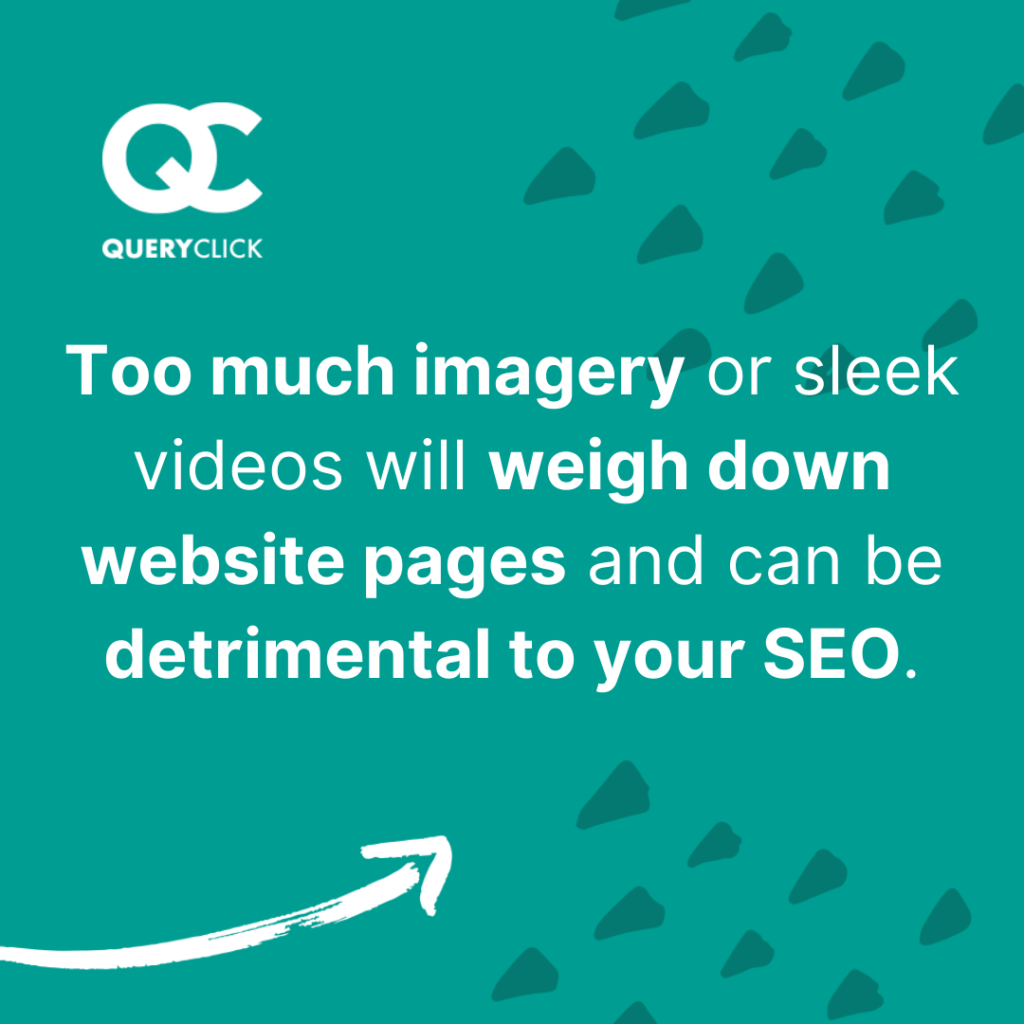
Afterall, a fast loading, easy to use site reflects the high levels of customer service and focus that one would expect when making an expensive purchase.
So, what can be done to drive performance here?
- Closely monitor video and image file types and sizes while using lazy loading for content that sits below the fold.
- It may be tempting to use JavaScript to give your site a slick feel, but only use it when it is really necessary.
- Review 3rd party tools and scripts; remove legacy tags and anything that isn’t adding value right now can be removed.
How can page speed optimisation improve your ROI? Find out here…
Link acquisition strategies
Having built a reputable brand, and one that people will aspire to align themselves with, it may seem logical that this will enable you to generate links.
That may be true to a certain extent, especially with effective PR (which demands effective integration with SEO).
However, when it comes to more traditional outreach activity, leveraging your brand alone is not enough.
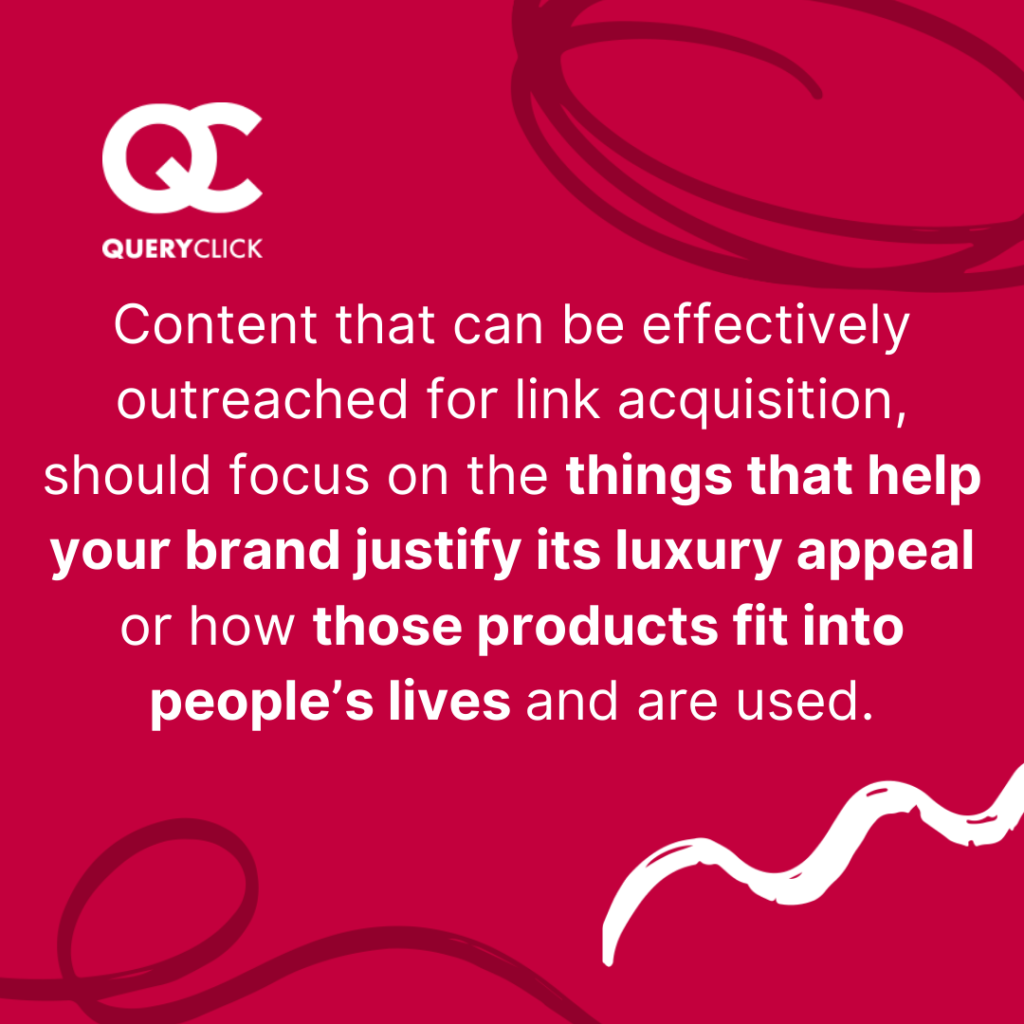
After all, effectively outreaching heavily branded content requires you to request other site owners and publishers place content that is tantamount to advertising on their site, without them generating any direct revenue from it.
Therefore, it is likely that they will request payment (which should negate any link benefits for SEO) and it may be that such costs are higher for brands that have products at a higher price point; based on an assumption about your budget relative to revenue from single transactions.
So, how can you create content that can be effectively outreached for link acquisition, that remains in-keeping with your brand?
The key is to look deeper than your brand name; you need to identify those things that help your brand justify its luxury appeal or how those products fit into people’s lives and are used.
Related: An Introduction to Link Building for SEO
By creating exceptional content around such themes, with a focus that transcends just your brand, you can open the value and relevance of the content up to a wider audience. This means there is a greater opportunity to generate links from a much wider pool of sites.
For example, high-end kitchenware brands could focus on guiding people through perfecting advanced cooking and food preparation skills.
Or, a luxury furniture brand could create valuable content around practical furniture restoration to further their sustainability credentials and showcase their expertise when it comes to quality craftsmanship.
Each of these concepts aligns with the brand, provides value to users, and will have appeal beyond their core audience (while also showcasing elements of their brand that helps them attain the luxury positioning).
This results in a greater range of sites they can be outreached to, which should allow more links to be generated, higher rankings to be achieved and subsequently more organic revenue.
In summary
There are a distinct set of requirements to deliver strong SEO results for luxury brands.
To maximise performance, you should:
- Be selective about keyword targeting – go for keywords that will result in higher conversion rates.
- Ensure you can justify your luxury price tags with SERP displays and onsite experiences.
- Don’t compromise on page speed with a site that focusses too heavily on aesthetics over performance.
- Don’t rely on brand and reputation alone for links, use your brand facets as a starting to point to create content that has wider appeal but maintains brand alignment.
Need help maximising your SEO performance? Speak to our experts today.
And in the meantime, download our Complete Guide to SEO Audits to get started with smashing your SEO goals.
A Complete Guide to SEO Audits
Own your marketing data & simplify your tech stack.
Have you read?
I have worked in SEO for 12+ years and I’ve seen the landscape shift a dozen times over. But the rollout of generative search engines (GSEs) feels like the biggest...
As you will have likely seen, last week Google released the March 2024 Core Algorithm Update. With it, comes a host of changes aiming to improve the quality of ranking...
After a year of seemingly constant Google core updates and the increasingly widespread usage of AI, the SEO landscape is changing more quickly than ever. With this rapid pace of...
